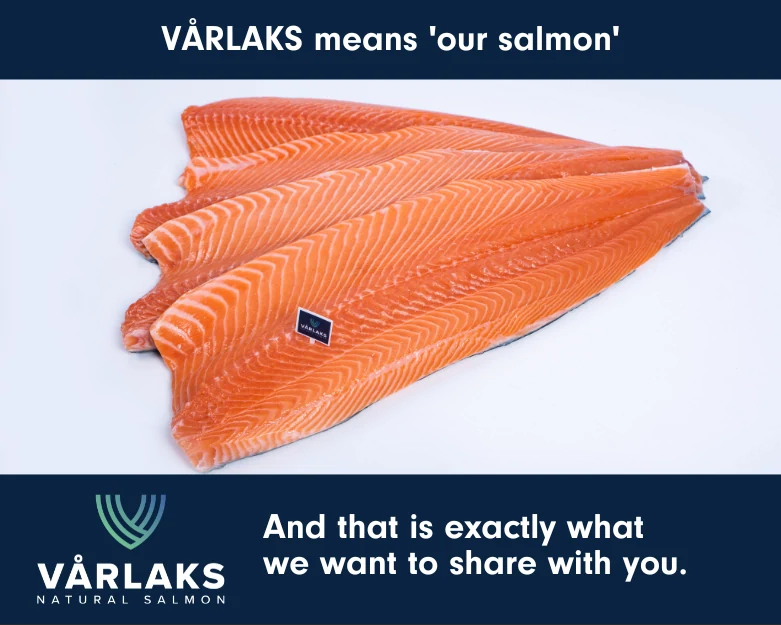The San Francisco-based company, Wild Type have been developing and growing their brand of “clean meat” salmon from cells. “We are not aiming to disrupt,” says co-founder Aryé Elfenbein, but should the industry be worried?
Strains of lab-grown meat – once considered to be in the realm of science fiction – are fast becoming a reality. Backed up by deep-pocketed investors in Silicon Valley, the next gen of beef, blue-fin tuna, and chicken producers are seeking millions of dollars in seed investments to produce futuristic lab-grown meat. SalmonBusiness interviewed Wild Type, who are on the road to accelerate the “cellular” growth of salmon.

Extreme food security
The project is the brainchild of former U.S. diplomat, Justin Kolbeck and cardiology researcher, Aryé Elfenbein, MD. Kolbeck witnessed cases of extreme food security in countries such as Afghanistan and Pakistan. Upon returning to the US in 2011, he met Elfenbein who was studying for an MD/PhD in cardiology and researching how the heart could regrow functional muscle tissue lost in a heart attack.
“I finished my residency in Internal Medicine and fellowship in Cardiology, after which point I moved to San Francisco to work on genomic approaches to cardiac regenerative therapeutics,” said Elfenbein.
Over the years, the future Wild Type team, Kolbeck and Elfenbein would frequently discuss emerging techniques in stem cell biology and tissue engineering and their potential applications beyond the biomedical sciences. “While our professional backgrounds differ considerably,” Elfenbein explained, “Justin and I share a passion for good food from sustainable sources.”
Exploring new ways
With global demand for seafood higher than ever and wild fish stocks continuing to decline, the team felt compelled to explore new ways to produce salmon directly from animal cells. They founded the company in October 2016 calling it Wild Type, a nod to the biology term, meaning that something exists naturally.
The team told TechCrunch that they are working in different steps. Phase one is to develop a minced salmon meat for sushi rolls, and from there on, the company is targeting slices for bagels, and eventually, salmon filets.
“We grow salmon meat outside of the animal, starting with cells that are able to both proliferate and become the structures that comprise meat (i.e. muscle, fat, connective tissue, et cetera)” said Elfenbein.

Cost
In September we spoke to Mike Selden from Finless Food who are using cellular agriculture to make cultured luxury high-end blue-fin tuna. Selden said that he was confident that his products would some day sit alongside seafood products. SalmonBusiness wondered if they will be ready to roll out product soon? And like any new tech, will cost per kilo be in issue?
“Although we have not yet announced an initial market release date, the quality of our product is constantly improving as our cost of production decreases. Our long-term objective is to create, high-quality salmon at prices comparable to, and eventually lower than conventionally harvested fish,” added Elfenbein.
Food industry’s biggest disrupter?
Earlier this year we reported that Cargill CEO, David MacLennan said he he’s open to major acquisitions as the US’s largest privately held company looks to tap growing demand for alternative proteins. Furthermore, Alan Cook Vice President of Marel Fish Seattle told this publication that he thinks “enough consumers will accept lab grown meat to make it a competitive threat in the medium term.” We asked, do you see this futuristic industry taking out the old?
“We are not aiming to disrupt existing industries, said Elfenbein. “Meeting the growing demand for fish and meat will require a number of complementary approaches, both familiar and novel. We hope to work alongside established producers to provide sustainable, delicious, affordable, and nutritious salmon to consumers.”
Reformers?
And to those who may feel threatened by the new tech?
“From day one, we have welcomed collaboration with friends in the food world, current producers of fish and meat, and our broader communities who share a vision of creating delicious and sustainable food,” said Elfenbein.
Earlier this year, the company secured $3.5 million in funding from venture firms, Spark Capital, Root Ventures, Mission Bay Capital, as well a number of angel investors. Just what is the most appealing aspect to present and would-be backers?

“We believe the most appealing aspect to investors is our ability to sustainably produce high-quality salmon. Our seed round of funding is being used to build our team, improve our technology platform, and establish relationships with chefs and other thought leaders in the food world as we improve our products and build our brand.”
Salmon farming
SalmonBusiness put to the co-founder if he had any views on the salmon farming industry and if it influenced their vision for Wild Type?
“Many salmon producers are taking significant steps to improve not only efficiency, but also the health and sustainability profiles of their products. We wanted to accelerate this positive momentum by introducing an entirely new way to produce the same salmon that we have all grown to love. The environmental benefits of cellular agriculture (both in terms of theoretical production efficiencies and the potential reduction in transportation, packaging, refrigeration, etc. that you describe) certainly represent one important differentiator of our approach to conventional salmon production.”











